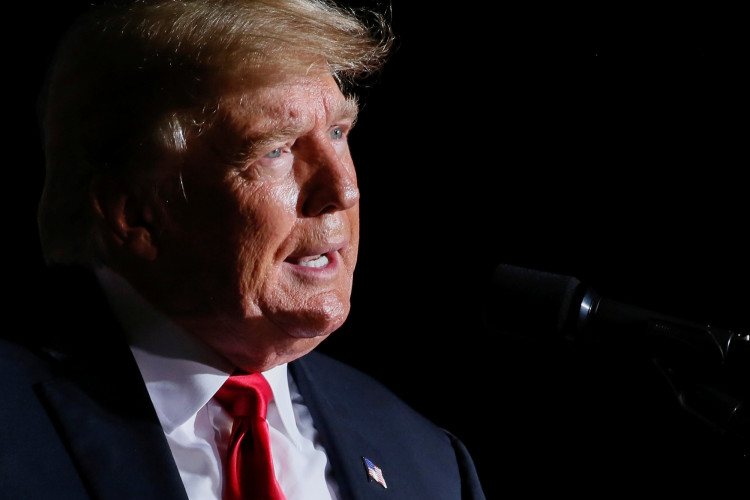A federal judge in Maryland issued a nationwide preliminary injunction on Wednesday, blocking former President Donald Trump's executive order aimed at ending birthright citizenship for the children of undocumented immigrants.
The ruling, delivered by U.S. District Judge Deborah Boardman, marks the second major legal setback for Trump's policy, following a similar ruling last month by U.S. District Judge John Coughenour in Washington state.
"The denial of the precious right to citizenship will cause irreparable harm," Boardman said. "It has been said the right to U.S. citizenship is a right no less precious than life or liberty. If the court does not enjoin enforcement of the executive order, children subject to the order will be denied the rights and benefits of U.S. citizenship and their parents will face instability."
Trump's Order Faces Strong Legal Resistance
Trump's executive order, issued on his first day back in office, sought to reinterpret the 14th Amendment, which grants automatic citizenship to anyone born on U.S. soil. The order would have excluded children of undocumented immigrants or those whose legal status was temporary or uncertain.
Boardman ruled that the order "conflicts with the plain language of the 14th Amendment" and contradicts 125 years of Supreme Court precedent on citizenship.
"The U.S. Supreme Court has resoundingly rejected the president's interpretation of the citizenship clause," she wrote. "In fact, no court has endorsed the president's interpretation, and this court will not be the first."
She added that the plaintiffs-five pregnant undocumented women and two nonprofits-would "very likely" succeed on the merits of their case.
Legal Challenges Mount Against Trump's Immigration Policy
The ruling in Maryland follows a similar temporary restraining order issued by Judge John Coughenour in Washington state, who last month blasted the Department of Justice for defending what he called a "blatantly unconstitutional" order.
"I have difficulty understanding how a member of the bar can state unequivocally that this is a constitutional order. It boggles my mind," Coughenour said. "Where were the lawyers when this decision was being made?"
With Judge Boardman's decision expanding the block into a longer-term nationwide injunction, Trump is now expected to appeal the case to a higher court-setting the stage for a potential Supreme Court battle.
Plaintiffs Argue Executive Order Would Create Stateless Children
The lawsuit against Trump's order was brought by five pregnant undocumented women, along with immigrant advocacy groups. The women argued that the denial of birthright citizenship would leave their children stateless, as many of their home countries do not automatically confer citizenship based on parentage alone.
One plaintiff, Monica, a Venezuelan medical doctor with Temporary Protected Status, expressed deep concern about the future of her unborn child.
"I'm 12 weeks pregnant. I should be worried about the health of my child. I should be thinking about that primarily, and instead my husband and I are stressed, we're anxious, and we're depressed about the reality that my child may not be able to become a U.S. citizen," she said.
Trump Administration Defends the Policy
The Department of Justice argued that Trump's order was meant to correct "misinterpretations" of the 14th Amendment and curb what it called "perverse incentives" for illegal immigration.
DOJ lawyers claimed that birthright citizenship "creates an incentive for those who circumvent or outright defy federal immigration laws."
"Text, history, and precedent support what common sense compels: the Constitution does not harbor a windfall clause granting American citizenship" to children of undocumented immigrants, the administration stated.
Next Steps: Potential Supreme Court Showdown
With Trump's legal team expected to appeal the Maryland injunction, the case could soon reach the Fourth Circuit Court of Appeals, and potentially, the Supreme Court.
Legal experts suggest that the high court's conservative majority could be sympathetic to Trump's argument, though precedent remains firmly in favor of birthright citizenship.






